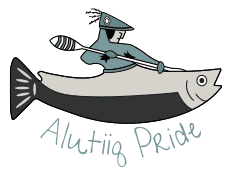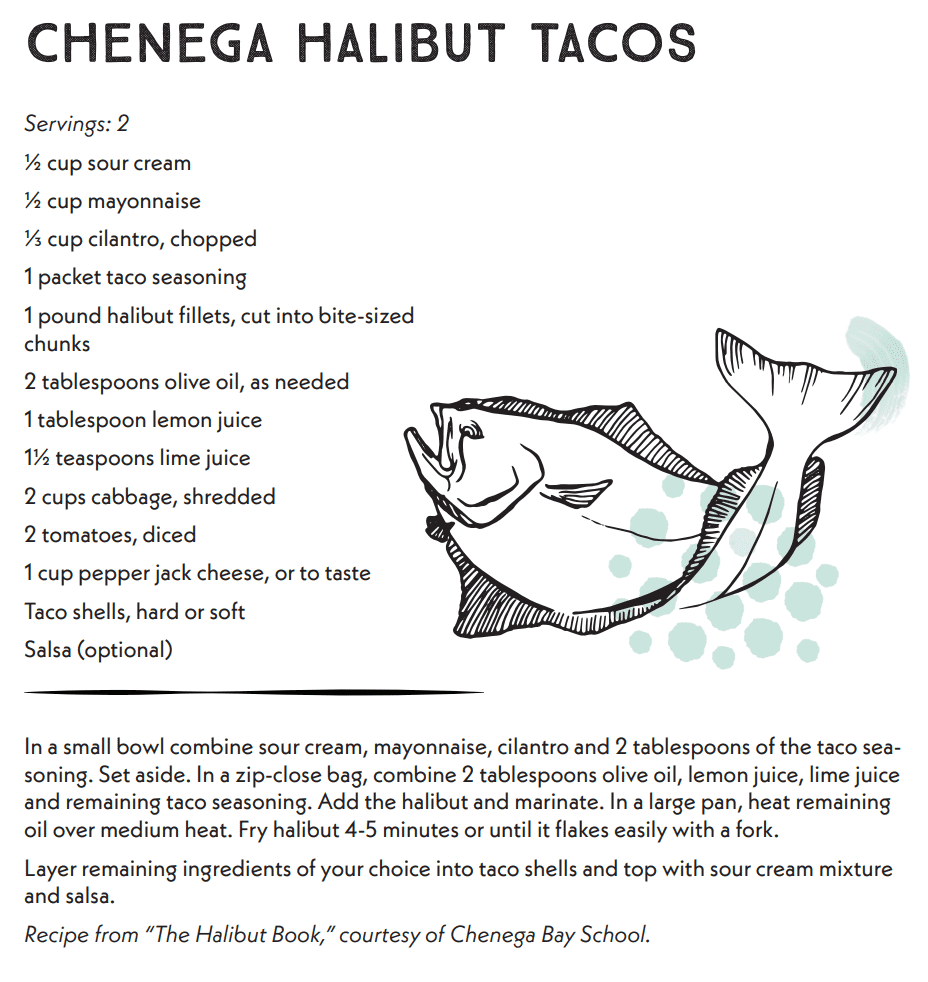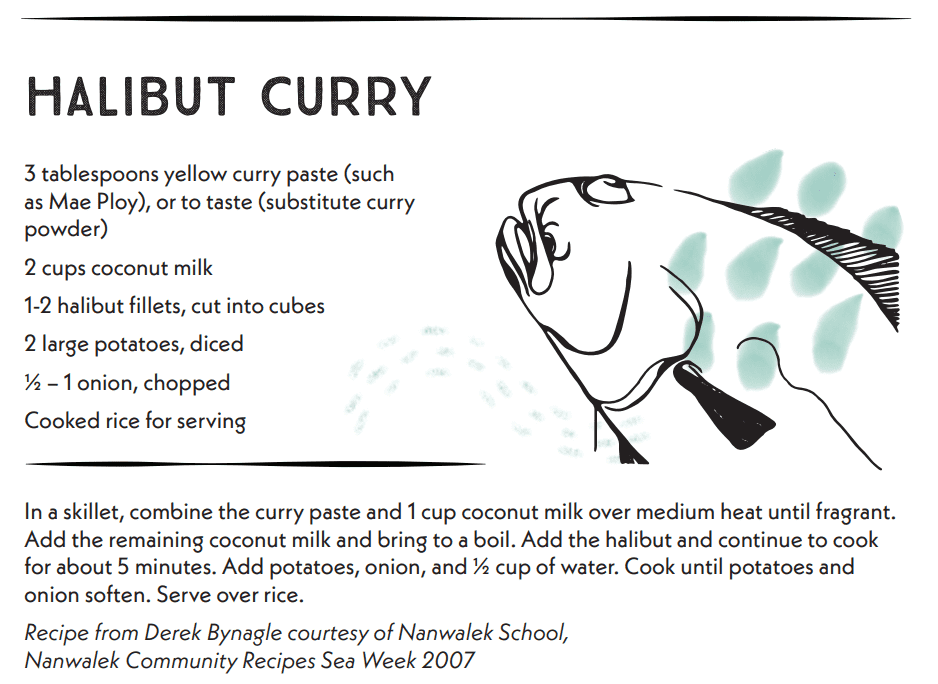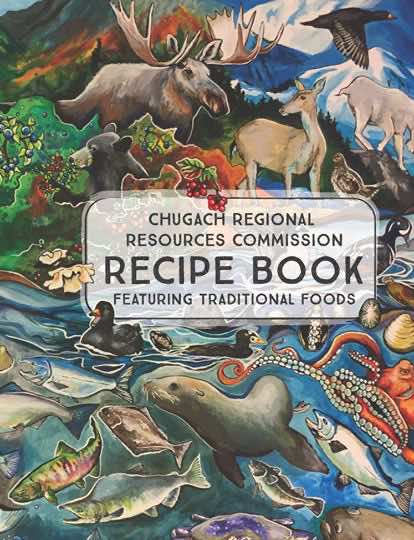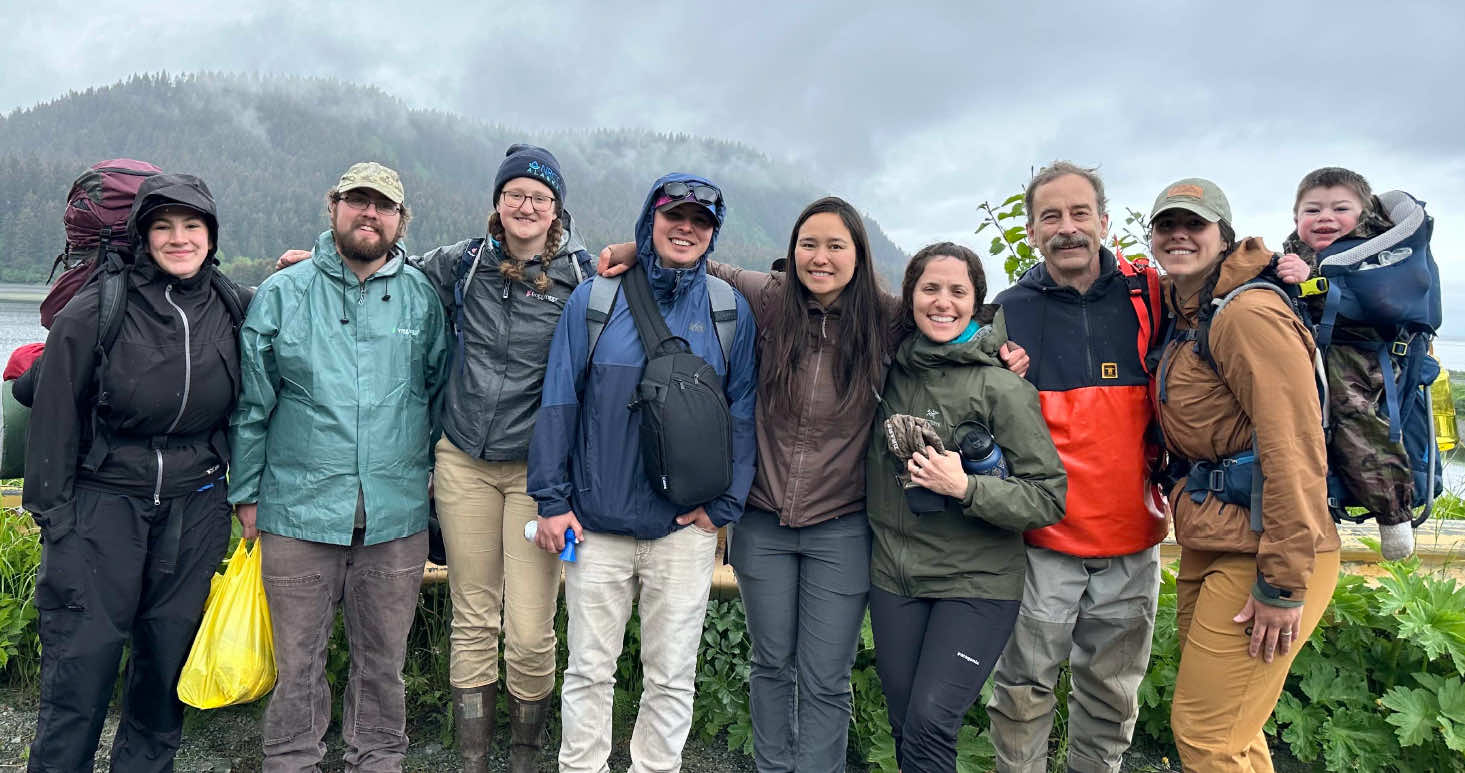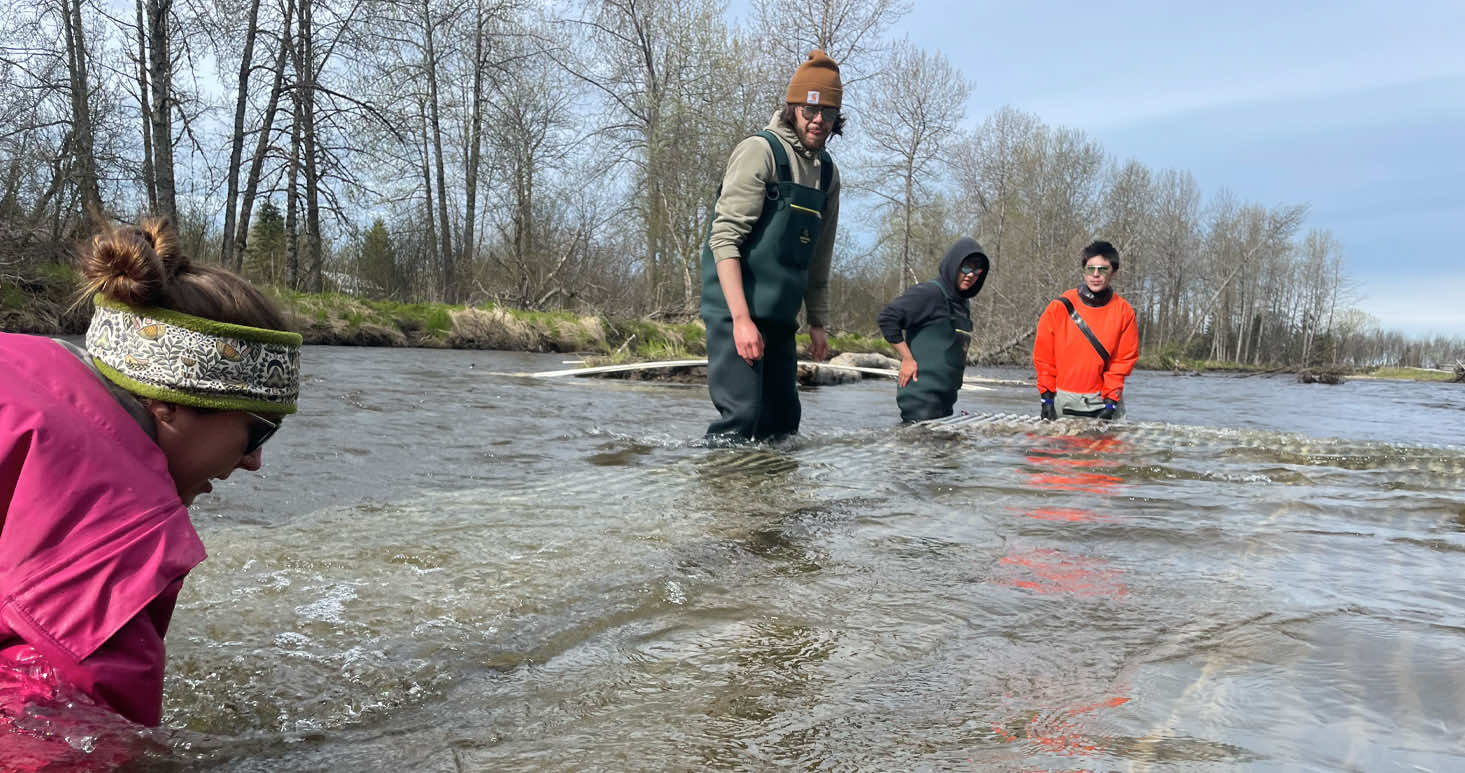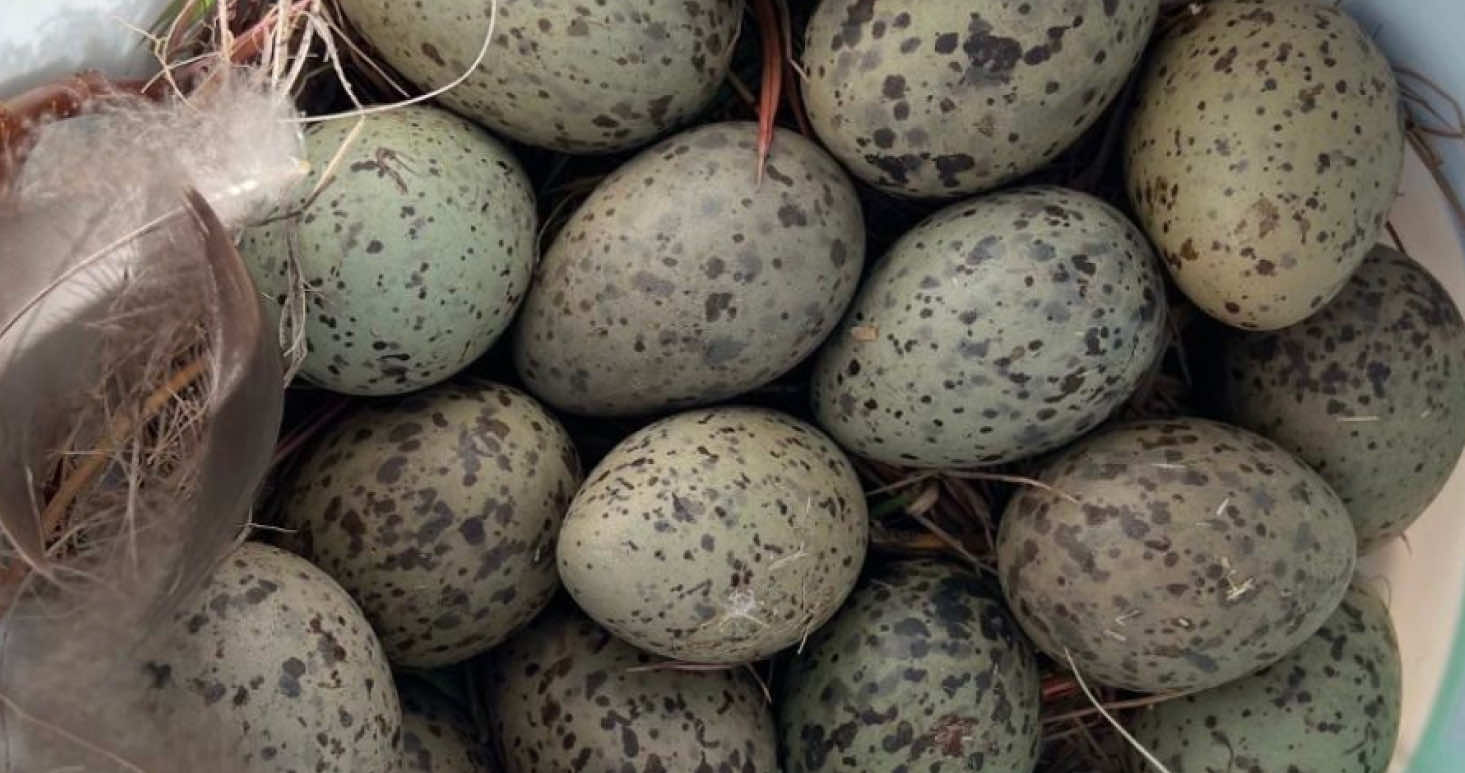CRRC 2023 Q3 Newsletter
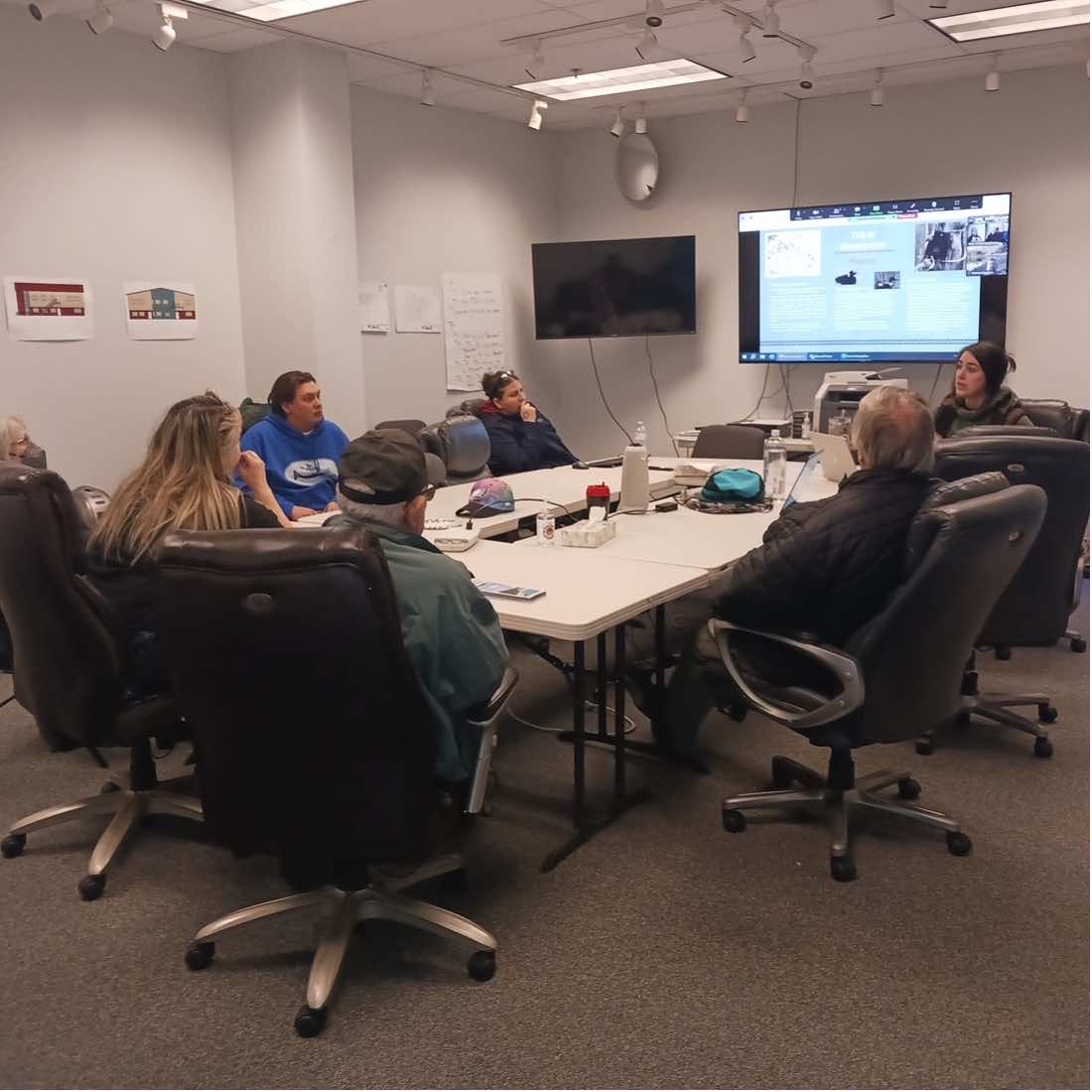
We have welcomed a cold start to summer this quarter and are excited to share program updates. The Chugach Regional Ocean Monitoring (CROM) program has been observing water quality, and the Alutiiq Pride Marine Institute hosted a biotoxin monitoring workshop in Seward as well as the Q3 board meeting. Our communities have been busy fishing and harvesting. We are excited to see all the beautiful recipes they come up with! The Tribal Fish & Wildlife Department has been strategically planning through community visits to determine community needs and goals to develop action plans. We are continuing to update our website to better represent the work we are doing and welcome a new staff – Sarah Farmer. Staff also traveled to Cordova to learn and help with kelp processing and guests from the Alaska Sea Life Center visited the Alutiiq Pride Marine Institute.
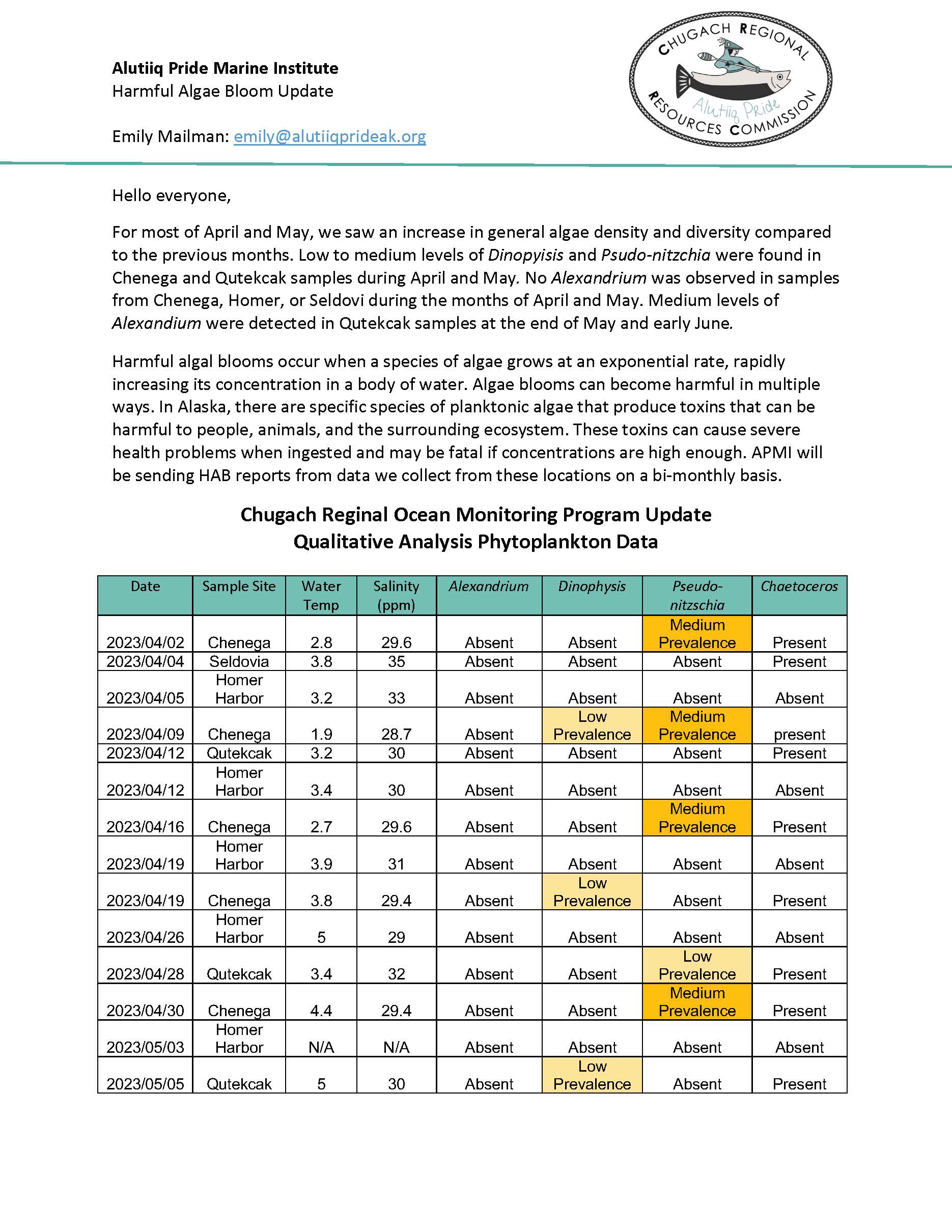
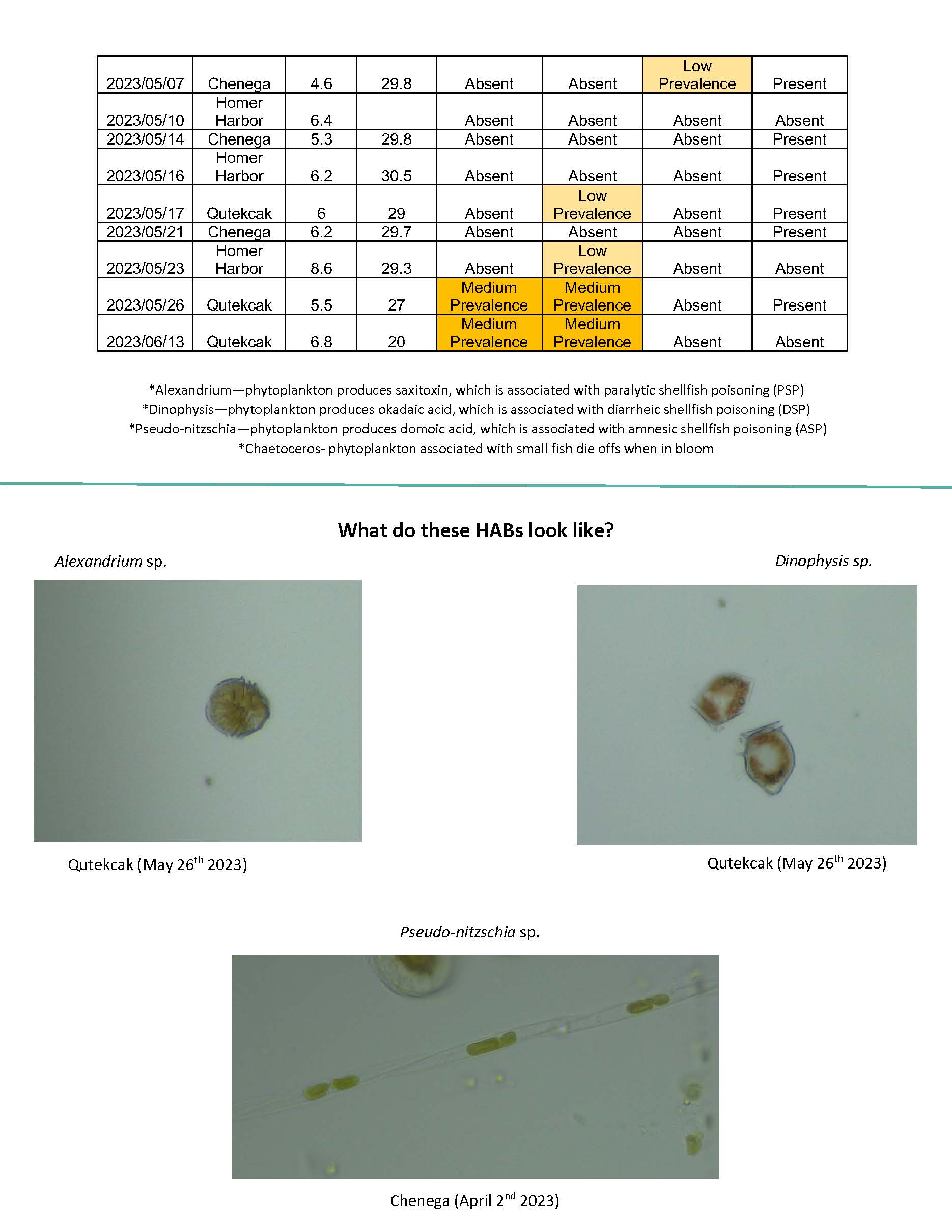
CRRC and APMI are not regulatory agencies and the consumption of wild shellfish in Alaska is up to consumer discretion. Commercially harvested shellfish are regulated by the Department of Environmental Conservation and are considered safe for consumption. CRRC and APMI make no recommendations for harvest safety. If you believe you have consumed shellfish contaminated by harmful algal blooms reach out to your local health officials.
Are you interested in becoming a community sampler for your community?
Contact
Ocean Acidification Lab Update
In addition to the communities we serve, APMI has added more new communities to our OA monitoring efforts and we continue to train new environmental samplers.
- APMI hosted a refresher training session in Seward for Emma Pate in attendance from the Norton Sound Health Corporation, from April 27th through April 30th. Topics covered included safe practices (chemicals), reviews of YSI instrument calibration and best practices for maintenance as well as DIC sample collection protocols and packing methods for shipping.
- A training session was held via Zoom on May 26th for our new samplers participating in Adak. Lisa Spitler with the Fish and Wildlife Service’s Aleutian Islands Unit, along with Lisa Holsinger a sampler in training were in attendance. After an introduction of our program monitoring seawater samples from around the state, topics covered included site selection, safe practices (chemicals & sample site), DIC sample collection protocols, and packing methods for shipping.
Water samples are being collected from sites at Utqiagvik, Nome, and Adak. Utqiagvik and Nome began sampling in late spring according to weather and ice pack. Adak began sampling in late May and early June. APMI expects to begin receiving samples and sending new supplies to samplers in mid-summer.
Welcome to our new samplers in Adak!
The continuous seawater monitoring from Resurrection Bay, which had been offline for most of the last quarter of 2022, during interruptions for maintenance of the seawater delivery intake system at APMI, has been up and running as of February 2023. The usual pattern of low CO2 in the seawater corresponds to algae blooms which draw down the CO2 in the spring.
Questions about ocean chemistry? Reach out to Jacqueline Ramsay ()
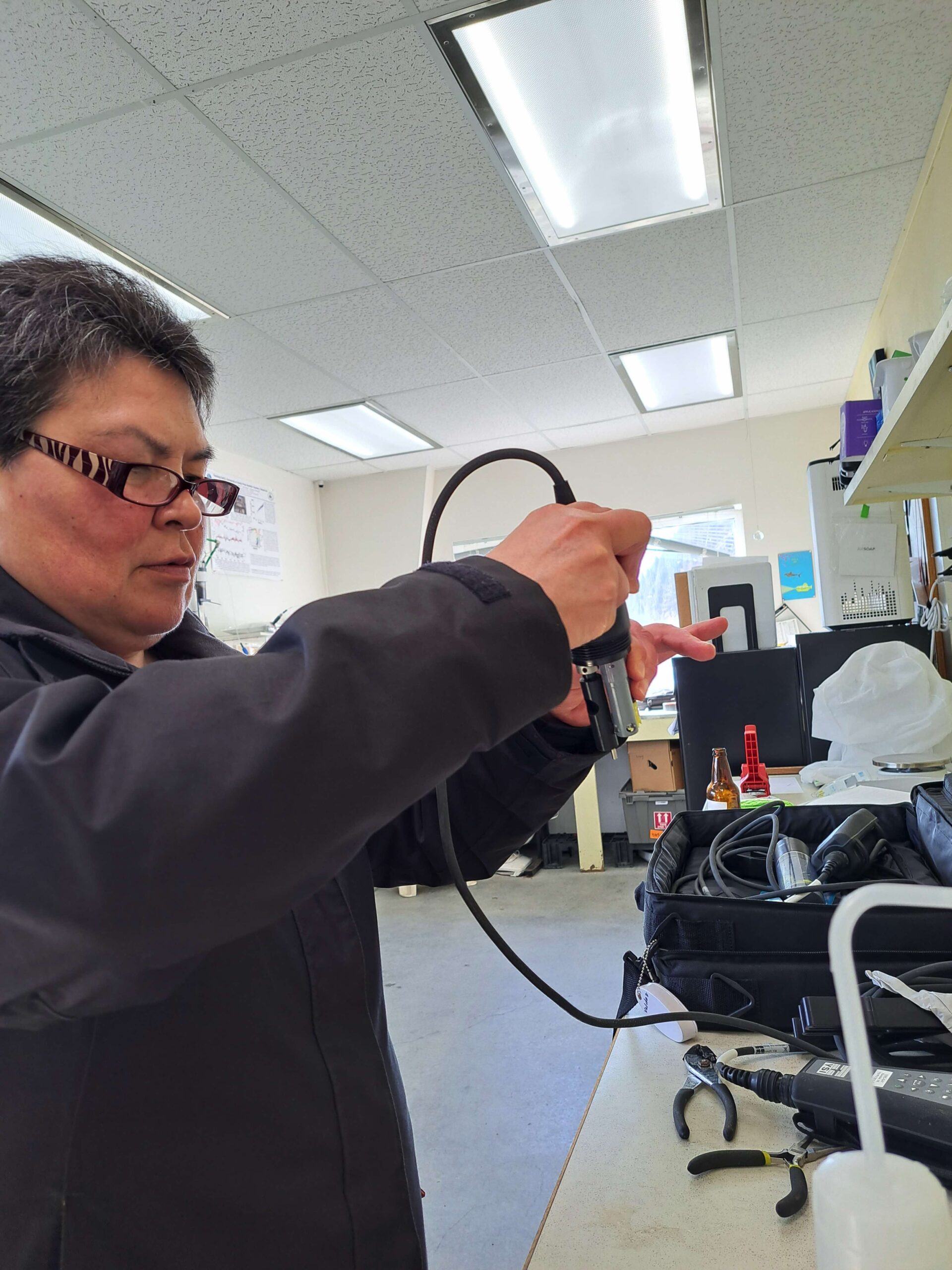
Emma Pate practicing using a YSI at the Alutiiq Pride Marine Institute
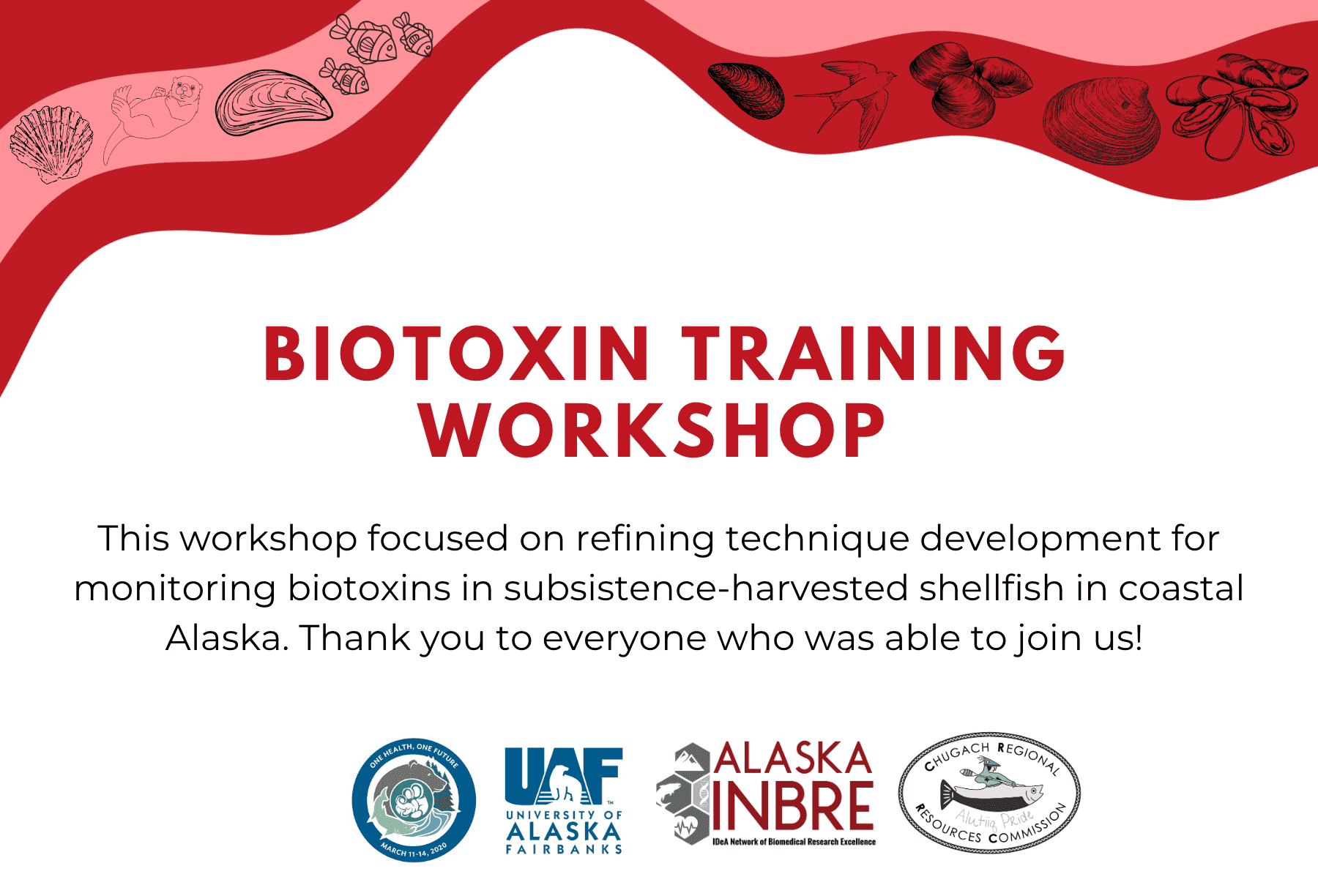
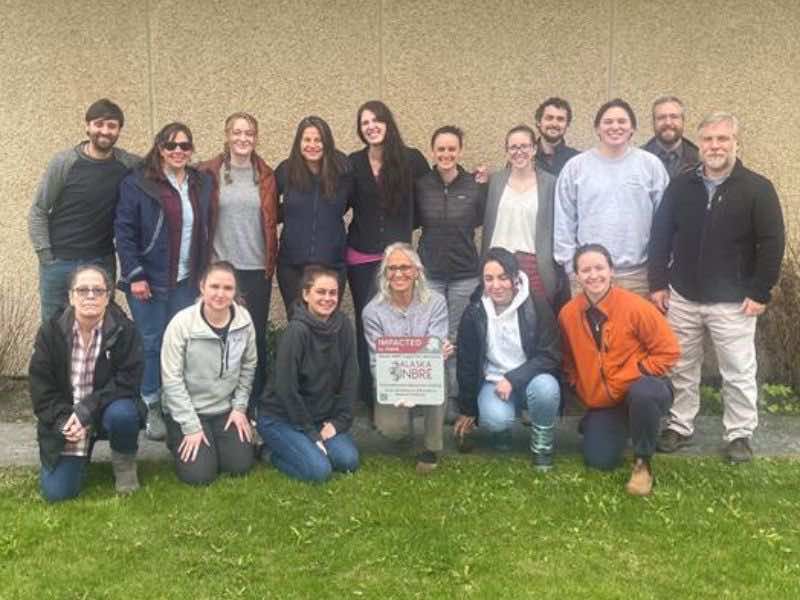
Traditional Foods Recipes
Chugach Regional Resources Commission produced a recipe book based on recipes from Tribal members in the Chugach region.
The recipe book can be purchased here: https://chugach-regional-resources-commission.square.site/product/recipe-book-featuring-traditional-foods/3?cp=true&sa=true&sbp=false&q=false
In an effort to enhance food security in the region, CRRC used CDC grants funds to remaster the recipe pages to include nutritional values provided by the ANTHC as well as translations in various dialects, when available, from the Chugachmiut Heritage Preservation.
Quarter Three Board Meeting in Seward, AK
CRRC hosted our FY 23 Q3 board meeting in Seward, Alaska. The day started with community updates from our board members and was followed by programmatic updates from CRRC. It was great to see our board in person and give them a tour of the Alutiiq Pride Marine Institute. Thank you to everyone for a meaningful day sharing programmatic and community updates. Thank you to the Qutekcak Native Tribe for hosting us in the office.
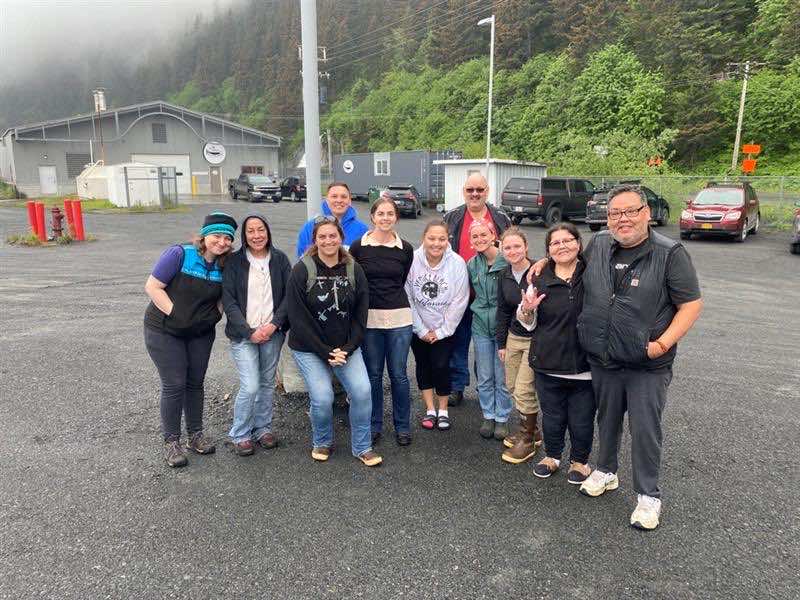
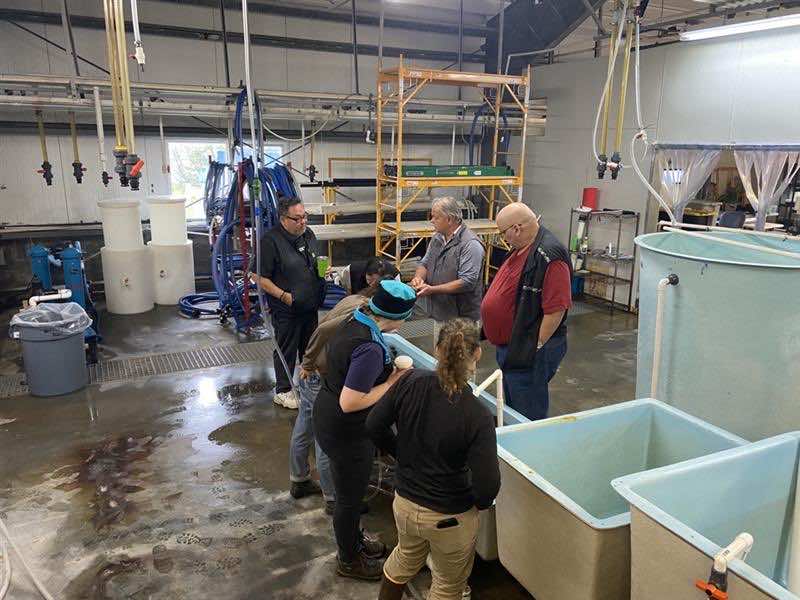
Tribal Fish & Wildlife Department Updates:
We would like to extend a warm welcome to the new Tribal Fish & Wildlife Director, Raven Cunningham, who was previously the Marine Mammal Program Manager. She will spearhead all things Fish & Wildlife with a great team, including Dustin Carl – Fish & Wildlife Biologist, Michael Opheim – Intertribal Liaison, Christine Brummer – Fish & Wildlife Coordinator, and Allison Carl – Research Scientist Apprentice. This team works hard to provide opportunities to support the Chugach Tribes and their access to subsistence resources, and economic development, and to lead stewardship efforts of their resources. Keep an eye out for new job listings as this department grows!
Our team has been busy this quarter with visiting communities, organizing projects, grant writing, and working on strategic planning. The department is planning on traveling to all seven of our communities over the next year to meet our members and discuss the wants, needs, and concerns our people have. We have already met with the Qutekcak Native Tribe and Native Village of Eyak and look forward to supporting them with future projects!
Marine Mammal Program:
We are wrapping up a few grants that supported the Chugach Imaq pilot project for the Marine Mammal Program. The CRRC team is looking for additional funding to support moving the project further. The Tribal Fish & Wildlife Director, Raven Cunningham, has spearheaded the development of the CRRC Marine Mammal Program and has worked to draw attention to the lack of data on marine mammal species in the Chugach Region and to address how this hurts the Chugach peoples’ well-being, cultural continuity, and spiritually. Mrs. Cunningham is Eyak Alaska Native and a marine mammal hunter who knows firsthand the culture and spiritual stewardship of marine mammals. The program will fill in data gaps while placing Indigenous views at the center of the research. These data gaps must be filled in for our co-stewardship plan to come to fruition. With additional funding, we will collect the necessary data for co-stewardship while assisting in shifting the balance of science to the co-production of knowledge between Indigenous and Western research.
Subsistence Program:
The Subsistence staff has been busy applying for grants, that if awarded will fund projects that support our community needs and fill in species (e.g. moose and marine mammals) related data gaps. Staff is also preparing to update the subsistence hunting regulation posters. They have been attending regulatory meetings, completing program reports, and working with Chugach Region land managers to continue relationship-building with them to further our mission of helping our Tribes and Tribal members.
Fisheries Program:
The Nanwalek IRA council has selected 10 tribal members for the Nanwalek Adult Sockeye Salmon Weir crew, and they will be setting up the weir to count the sockeye salmon running up the English Bay River during the summer. A much-needed, brand-new weir is currently being built for the 2024 season and will serve the Native Village of Nanwalek for another 20 years.
Wildlife Program:
CRRC is partnering with ADF&G to survey the moose population during early winter 2023 in GMU 15C in the Kachemak Bay and English River drainages using a combination of aerial surveys and game camera traps. We have started planning for surveying Port Graham to conduct ethnographic interviews with Port Graham residents, transcribe qualitative data, conduct a rigorous qualitative analysis, and summarize findings in a written report.

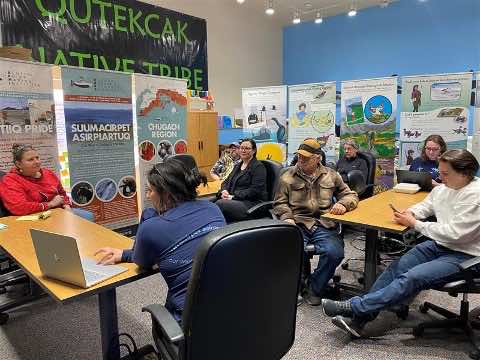
Our Tribal Fish & Wildlife Department meeting with community members in the Native Village of Eyak and at the Qutekcak Native Tribe Office.
Upcoming Subsistence/Regulatory Meetings & Dates
- Subsistence Alliance Meeting: Zoom on August 2nd, 2023; https://us02web.zoom.us/s/89005092161?pwd=U1NEb2ozK0NwQ0R0UnpNQjR2YzVXQT09#success
- Federal Subsistence Board Work Session: In August 2nd-3rd, 2023; https://www.doi.gov/subsistence/board
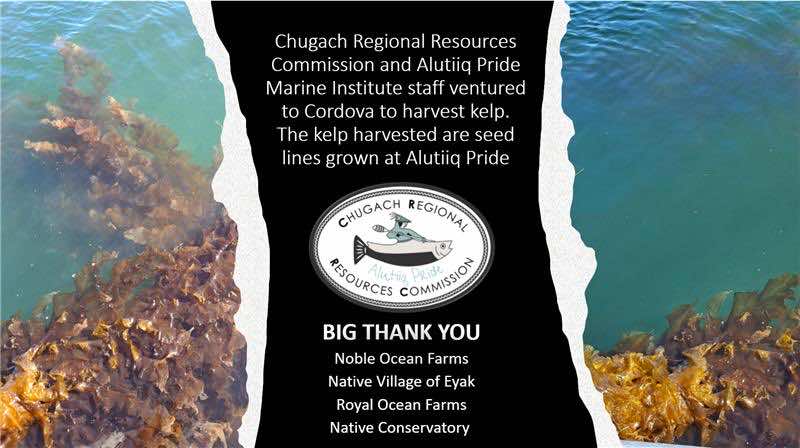
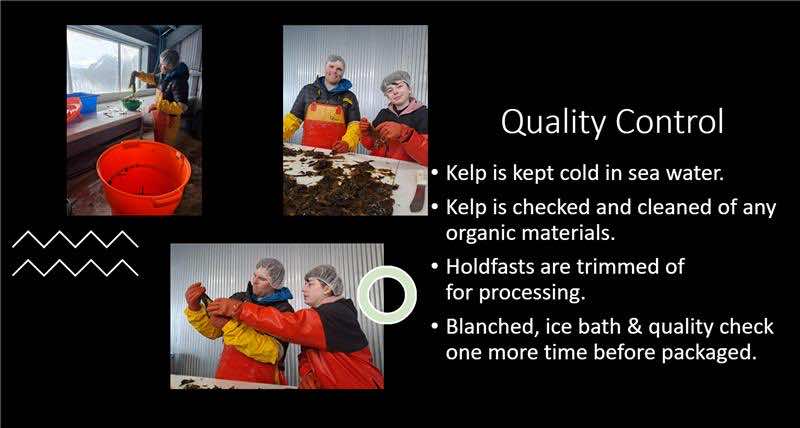
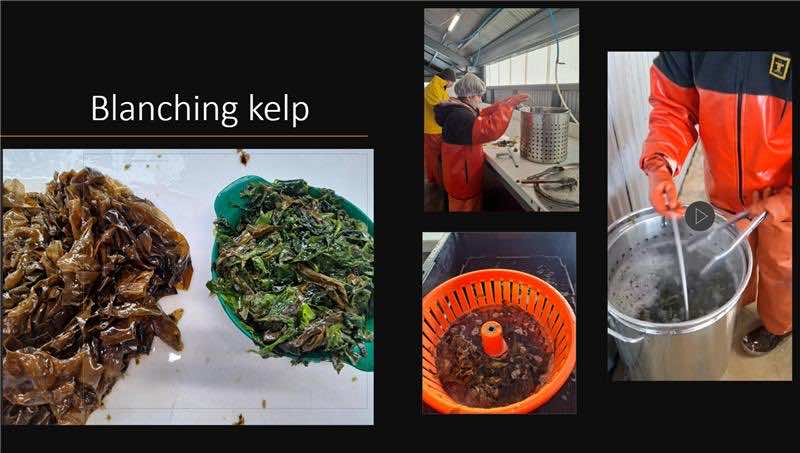
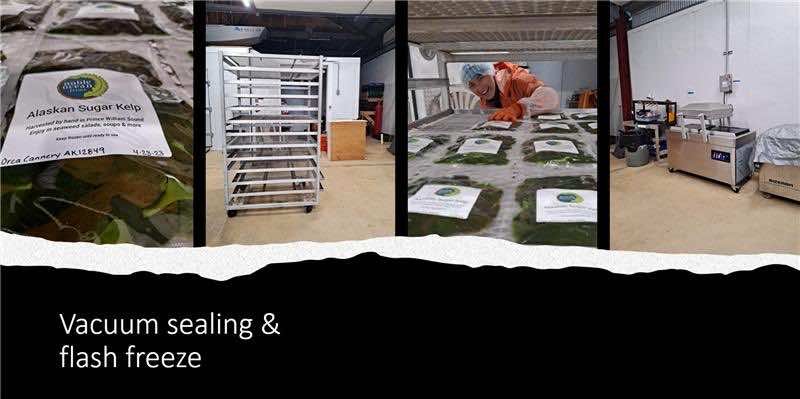
Climate Change Program Updates:
CRRC featured in Environment Magazine:
CRRC’s work has been highlighted in Environment Magazine. Read about how CRRC is working to understand and mitigate the impacts of climate change on traditional foods and local communities.
Regional Climate Adaptation Strategy:
CRRC has been working with a group of individuals from around the region to draft a regional strategy to mitigate climate impacts. Over the next several months, CRRC will be working with Tribal Councils to host community meetings to solicit additional input and feedback for the adaptation strategy. The goal of this strategy is to identify priority and longer-term activities we can take in the region, and the document will provide additional support and proof of the need for future funding activities.
Arctic T-Slip (Tsunamigenic Slope Instabilities Partnership) Project:
In 2020, researchers discovered a potential landslide hazard in Barry Arm. Glacial retreat had destabilized the steep slopes at the head of the arm, creating the conditions for a landslide that, depending on the amount of material that slips, could lead to a local but massive tsunami. CRRC is partnering with a group of international researchers to secure funding to co-produce a research plan to better understand, monitor, and communicate risks about landslide and tsunami hazards linked to climate change in Prince William Sound and Kachemak Bay. Our goal is to work with communities to develop research questions and understand research needs around this topic, producing data and tools that are useful to our communities and the people who live, work, and recreate in our region. You can find more information about the T-Slip project and sign up for the mailing list to be informed of webinars and other news here
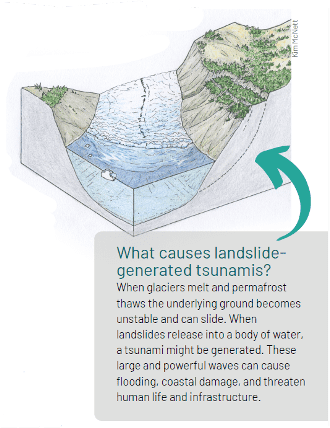
Welcome to CRRC, Sarah!
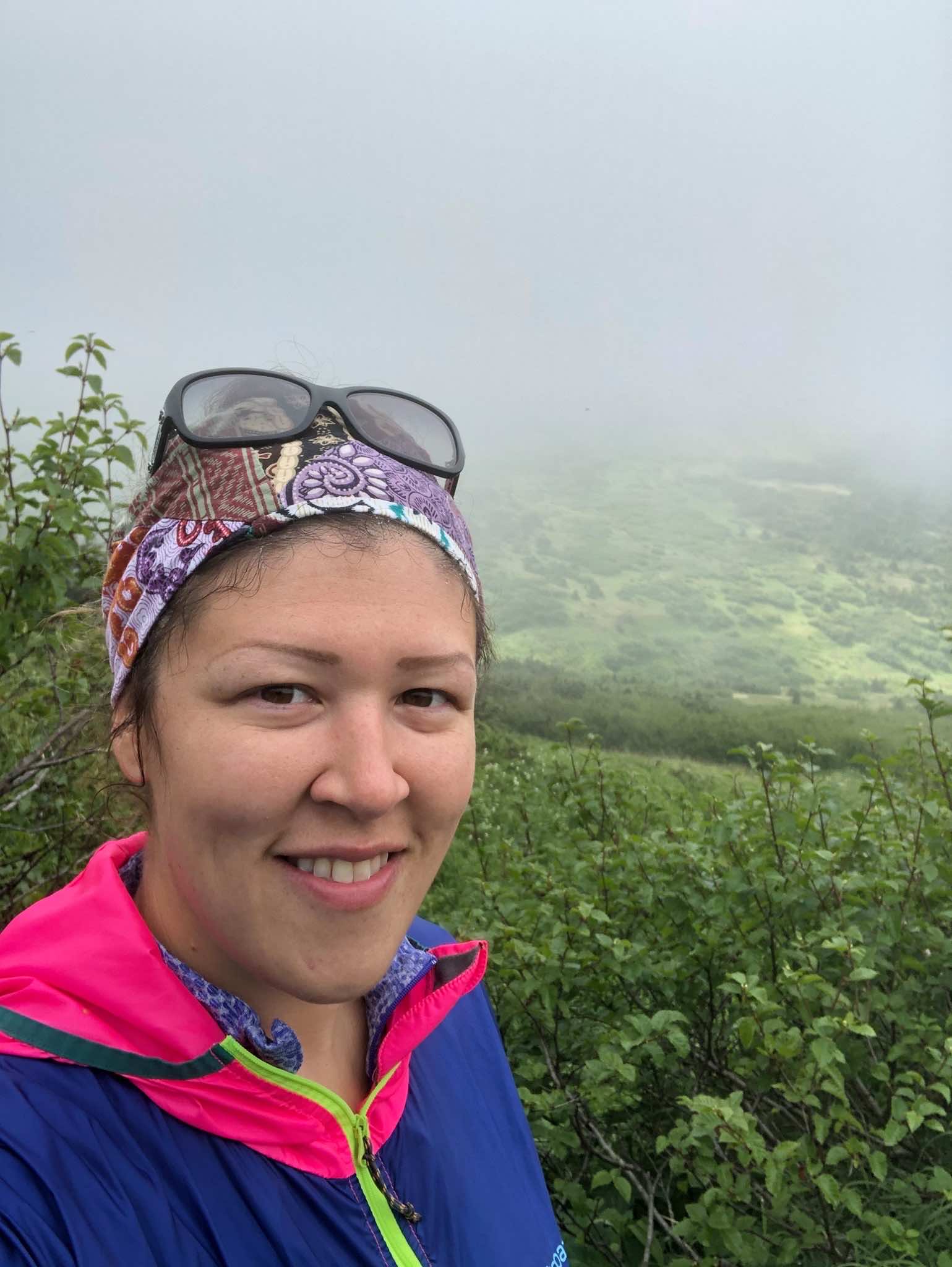
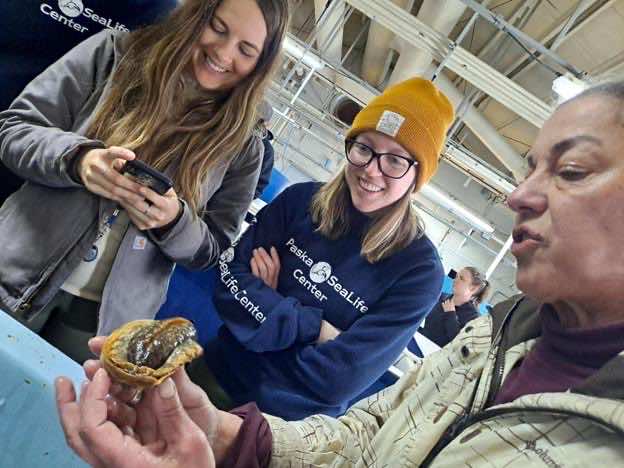
Scientists from partnering CORaL Network organizations participated in a scientist knowledge and project sharing. They toured each other’s research areas. This was an excellent sharing of scientific findings, equipment use, procedure success, and future research projects.
Pictured – Alaska Sealife Center & CRRC/APMI scientist looking at an Abalone.
CRRC Launches Self-Paced Harmful Algal Bloom Training – Click here!
In this course, you will learn about harmful algal bloom monitoring program of the Chugach region led by the Chugach Regional Resources Commission’s Alutiiq Pride Marine Institute, HABs in Alaska, and how they are currently monitored. Lastly, we offer tips and tricks on how to integrate phytoplankton baseline data collection into your environmental program.
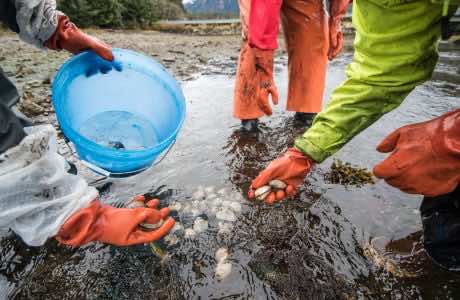
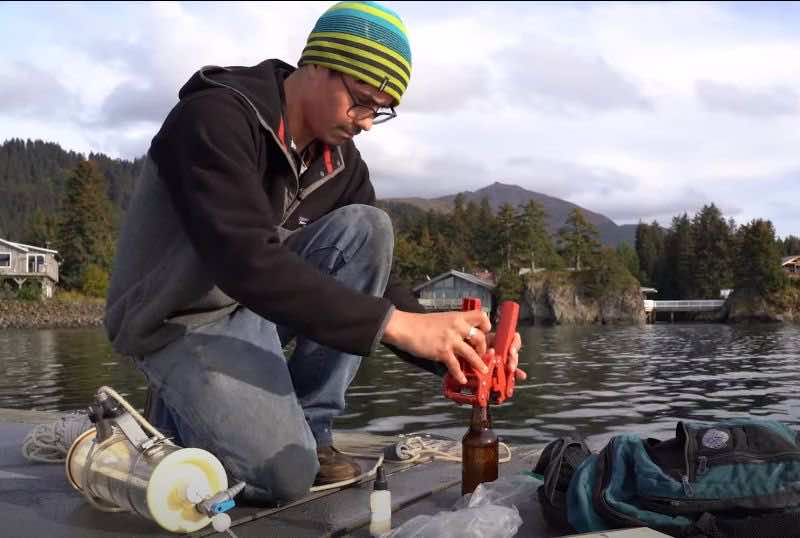
CRRC Launches Self-Paced Water Quality Monitoring Training – Click here!
In this course, you will learn about the water quality monitoring program of the Chugach region led by the Chugach Regional Resources Commission’s Alutiiq Pride Marine Institute, ocean acidification in Alaska, and how it is currently monitored. Lastly, we offer tips and tricks on how to integrate water quality baseline data collection into your environmental program.
